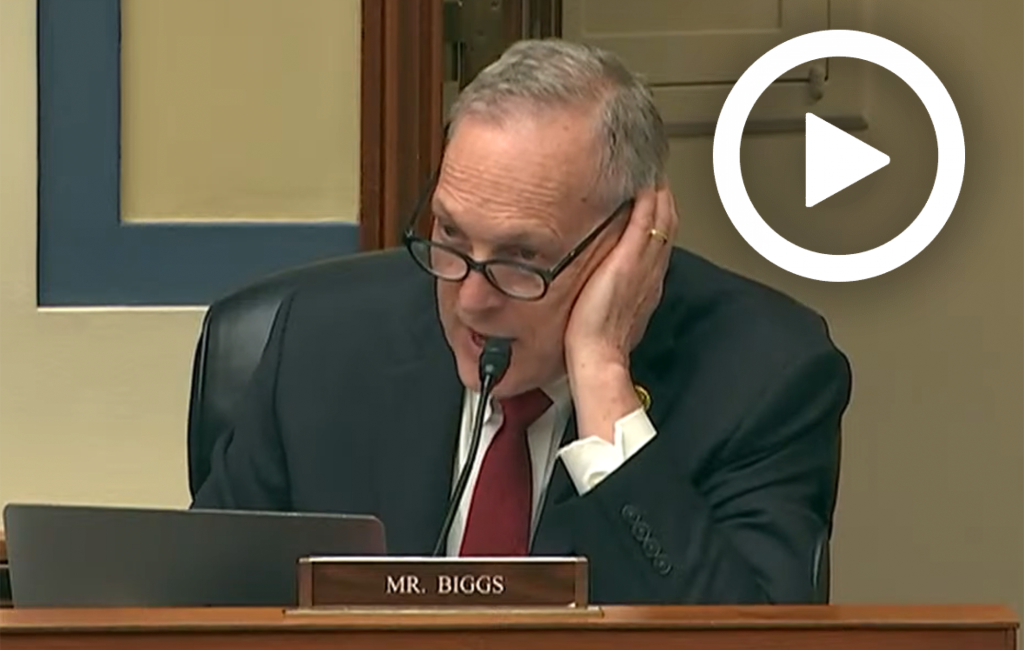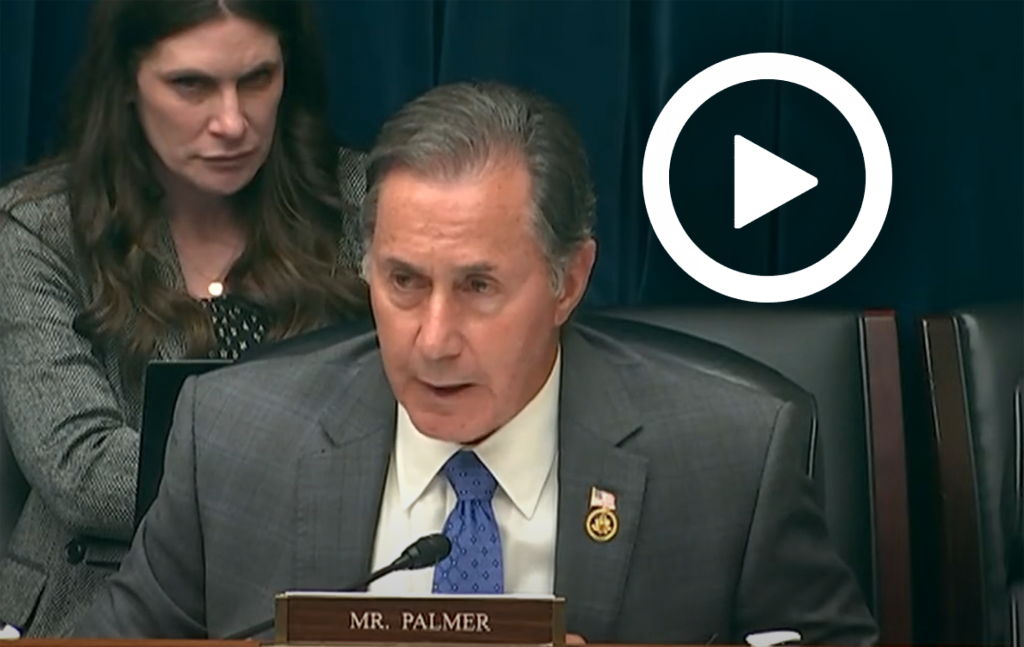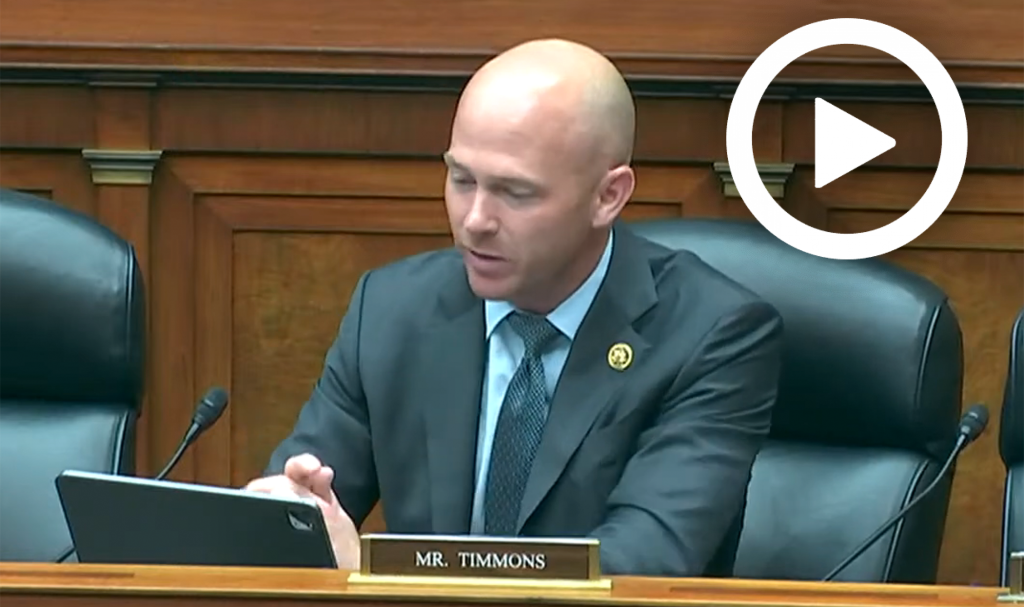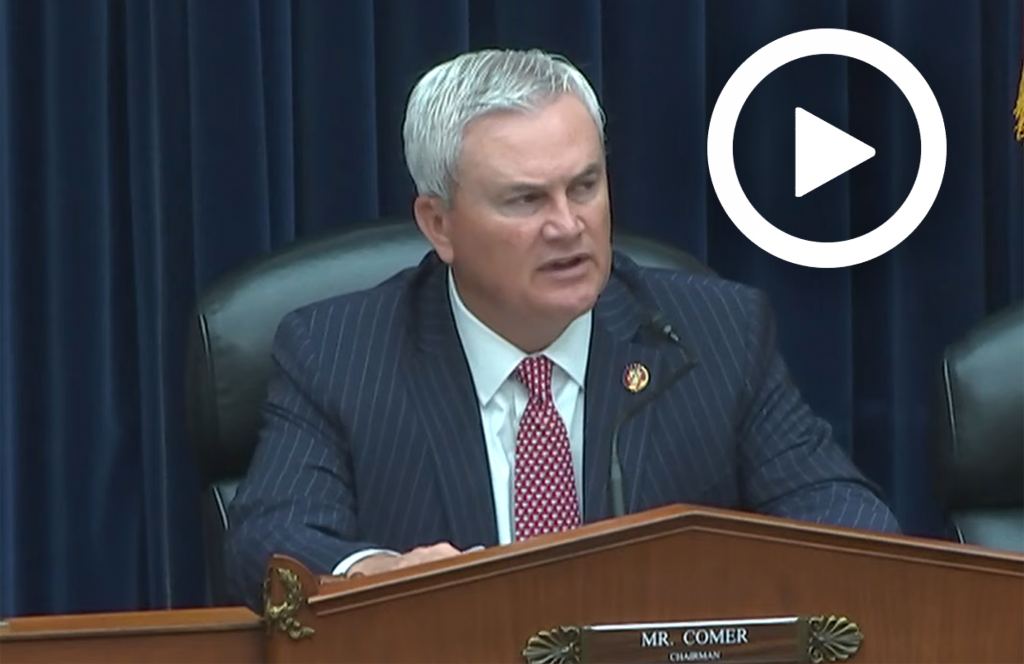Hearing Wrap Up: OPM Has Poor Track Record of Performing Oversight Over Agency Resource Practices
WWASHINGTON—The House Committee on Oversight and Accountability today held a hearing titled “Oversight of Our Nation’s Largest Employer: Reviewing the U.S. Office of Personnel Management, Pt. II” to examine the U.S. Office of Personnel Management (OPM)’s exercise of its responsibilities as the government’s chief human resources agency, including whether it is accomplishing core tasks and prioritizing agency performance over the demands of federal workers and federal employee unions. During the hearing, Republican lawmakers asked acting OPM Director Rob Shriver, why under the Biden Administration, OPM has bowed to the requests of federal employee unions instead of holding civil servants appropriately accountable to American taxpayers.
Key Takeaways:
At a previous House Committee on Oversight and Accountability hearing with OPM, OPM Director Kiran Ahuja could not answer basic questions about the percentage of the federal workforce telework or working remotely.
- Today, OPM still failed to provide key data to the Oversight Committee that justifies major management policies and their benefit to the American taxpayer, such as federal employee telework.
Under the Biden Administration, OPM has failed to improve confidence that civil servants are accountable to the American people and the leaders they elect. Instead, President Biden has issued a number of executive orders intended to empower unions.
- For example, President Trump, through Executive Order 13957, created “Schedule F” positions, which were to be exempt from normal hiring requirements and intended to faithfully implement the policies of an elected president. President Biden removed Schedule F on his first day in office, bowing to pressure from unions.
Certain federal employee use authorized “official time” to conduct union actives. It is critical that taxpayers have transparency about when and how official time is used.
Member Highlights:
Subcommittee on Government Operations and the Federal Workforce Chairman Pete Sessions (R-Texas) asked about OPM’s hiring procedures and emphasized the need for skills-based hiring.
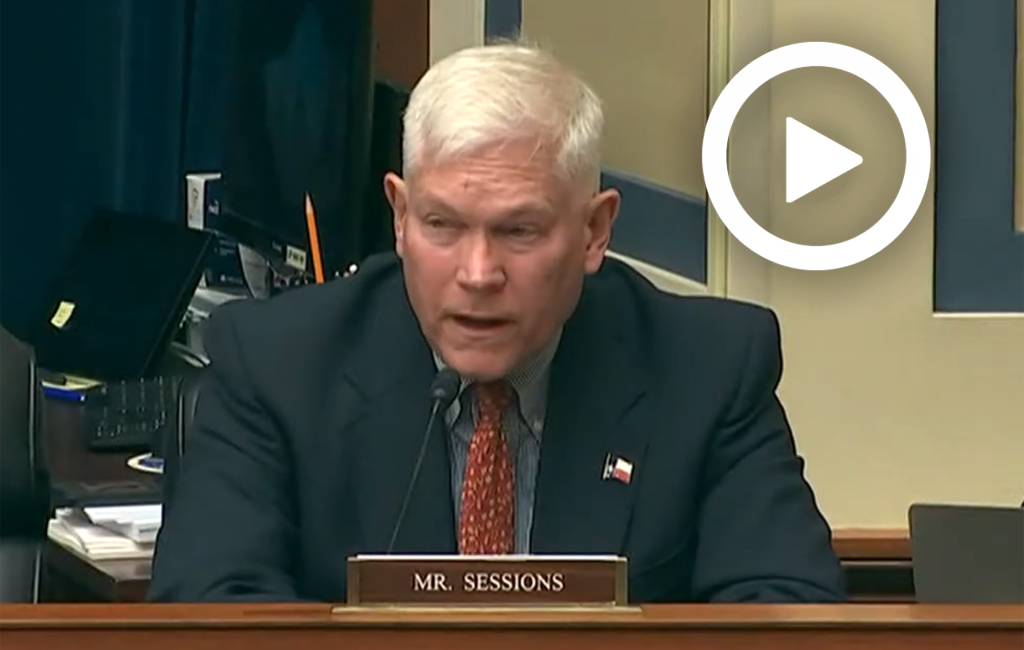
Rep. Sessions: “You’ve heard conversations I’m sure out of this Committee and in the press in your Administration about hiring qualified employees as opposed to adding a diverse workforce. Could you please tell me the OPM decision structure on this issue?”
Director Shriver: “We support the President’s initiative on diversity, equity, inclusion, and accessibility. We are implementing that imitative consistent with the Merit System Principles which require fair and equitable treatments without regards to race or other characteristics.”
Rep. Sessions: “Thank you very much. I’m talking about the hiring procedures. Under this term that we just used, diversity, does a person have to be qualified and fit the same parameters and recommendations that it would for any employee being hired?”
Director Shriver: “100 percent, sir. That is part of the Merit System Principle.”
Rep. Sessions: “So what you’re attempting to do is to upgrade the number of people across our country to give everyone a fair and equitable chance, so to speak, at getting the job. And you’re simply highlighting the need where numbers do not reflect that. Would that be an appropriate way to say this?”
Director Shriver: “Right. So we look for barriers and one barrier, for example Congressman, is the lack of paid internships in the federal government. That’s a barrier to people seeking federal employment, so we issued guidance early in the Administration to require more paid internships as an example.”
Rep. Andy Biggs (R-Ariz) discussed OPM’s process for handling civil servants who misuse leave or undermine Biden Administration policies to protest.
Rep. Biggs: “It was widely reported that members of the civil service organized and participated in strikes or misusing leave to protest the Biden Administration’s policies with respect to Israel and Gaza. What steps does OPM recommend for agencies dealing with employees who strike, misuse leave, or abuse their authority to undermine the policies of the Biden Administration?”
Director Shriver: “Thank you for the question, Congressman. We have well established leave, administration, rules, and policies.”
Rep. Biggs: “So what did you do? What did you recommend?”
Director Shriver: “I think that any time that any agency suspects that somebody is misusing leave, and I’m not familiar with the specifics of the hypothetical that you raised…”
Rep. Biggs: “It wasn’t a hypothetical. Let me give you an example, I’m looking at an MSN story, I’ve got four other stories that I can introduce. This wasn’t a hypothetical. This was folks from NASA, this is folks from staff in Congress, this is all across agencies of the federal government where people were walking out, organizing letters of protest against Biden policy.”
Rep. Biggs: “Can you tell me how many states have an at-will employment?”
Director Shriver: “No I can’t tell you that Congressman.”
Rep. Biggs: “I mean your legend about why at-will or the Schedule F would not work for you think, but have you examined states that actually have at-will in the private sector?”
Director Shriver: “What I’ve examined is the value proposition that Congress put in the Civil Service Reform Act.”
Rep. Biggs: “So the answer is no.”
Rep. Gary Palmer (R-Ala.) discussed the federal workforce’s resistance to the Biden Administration’s call to bring the federal workforce back into the office.
Rep. Palmer: “Mr. Shiver, back in August of ’23 the White House Chief of Staff Jeff Zients sent an email to cabinet leadership calling on them to aggressively increase in-person work, stating that doing so was a priority of President Biden. His email said that doing so would allow the executive branch to deliver results to the American people by improving teamwork and productivity within the federal workforce.
“In January, he sent a follow-up email demanding that further action be taken stating that some federal agencies are not where they need to be in the transition to greater in office work. Should we take from these that federal agencies’ operations and performance are not where they should be because employees are not returning to the office?”
Director Shriver: “No I don’t think that should be your conclusion from that.”
Rep. Palmer: “Now just looking at some of the problems at OPM, it would indicate that there’s something wrong you’ve either got people not able to do their job or they’re not there to do the job. Why does the government allow people not to come to work when they have a directive from the Office of the President to come back to work?”
Director Shriver: “Many agencies have hybrid working arrangements…”
Rep. William Timmons (R-S.C.) asked about OPM’s measurement of the value of telework in fulfilling agency missions for American taxpayers.
Rep. Timmons: “Dr. Shriver, what evidence do you have regarding the value of telework? What data do you have regarding the impact on agency missions and the impact on federal units. In sum, what evidence do you have that widespread federal telework is as effective and good for the taxpayer as in person work?”
Director Shriver: “Thank you, Congressman, and that’s always the key question is making sure that the work arrangements that we have in place for our workforces are driving us towards successful mission delivery. I am proud of the accomplishments that OPM has achieved with a workforce that does telework.”
Rep. Timmons: “So you’re claiming that continued telework is actually moving us in the right direction. Is that a fair classification of what you just said?”
Director Shriver: “What I’m saying is that the work arrangements that we have at OPM which include telework is consistent with the performance improvement that we’re seeing from our agency.”
Chairman James Comer (R-Ky.) discussed how OPM cannot provide Congress requested data for how many employees are teleworking and whether telework results in better outcomes for the American taxpayers.
Chairman Comer: “What specific benefits has OPM observed related to increased union membership in federal agencies?”
Director Shriver: “My understanding is that the membership of federal unions has gone up over the last several years.”
Chairman Comer: “What is OPM doing to know exactly how well the [Merit] System is or is not working and what is it doing to ensure that the civil service is working diligently and impartially regardless of who is in the Oval Office?”
Director Shriver: “Every civil servant has an obligation to put the mission first and work on behalf of the American people, so these are the things that we have done. Number one, we issued guidance to agencies to remind them of how they can make effective use of probationary periods. That’s the period at the beginning of a person’s career. […] Other things that we’ve done is provided free training to managers and supervisors across government on thriving in a hybrid work environment. This included a focus on performance management for teleworkers.”
CLICK HERE to watch the full hearing.
READ MORE: Comer: OPM Must Be Transparent About Taxpayer-Funded Workforce
